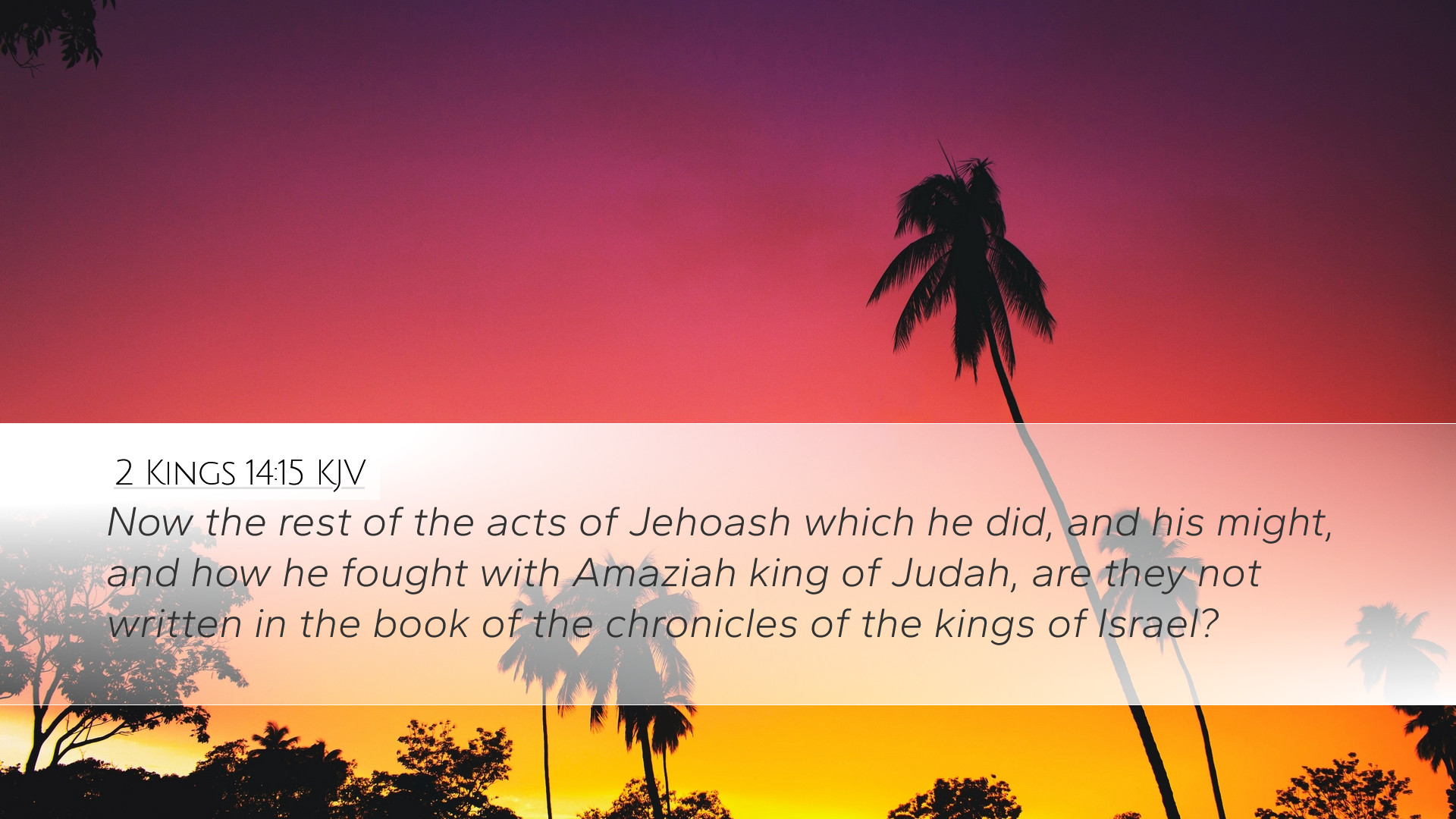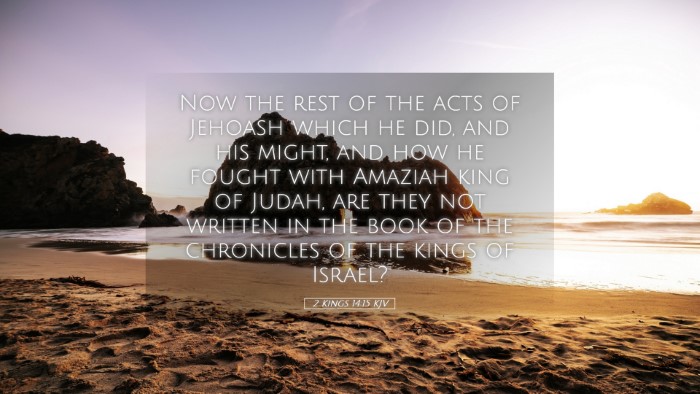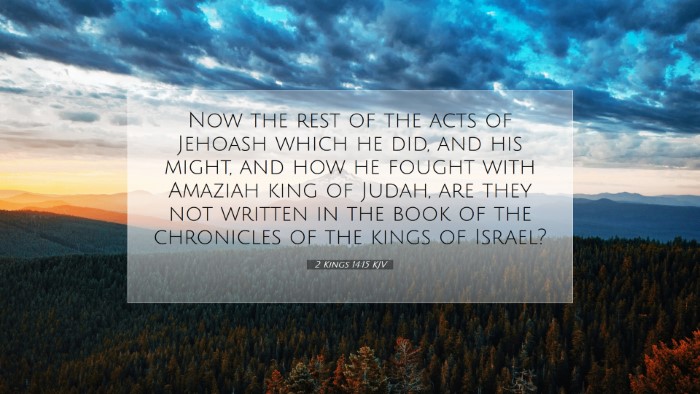Commentary on 2 Kings 14:15
Verse: "Now the rest of the acts of Jehoash which he did, and his might, and how he fought with Amaziah king of Judah, are they not written in the book of the chronicles of the kings of Israel?" (2 Kings 14:15)
Introduction
This verse serves as a bridge in the narrative of the kings of Israel, particularly concerning Jehoash, also known as Joash. It signifies the end of Jehoash's reign and looks into the historical records that encapsulate his deeds and military exploits, including his confrontation with Amaziah, king of Judah.
Contextual Background
The accounts of the kings of Israel and Judah are not just historical narratives; they serve as theological reflections on the covenant relationship that Israel had with God. Jehoash's reign (c. 798-782 BC) is set during a turbulent time, characterized by political intrigue and conflict amidst regional powers.
Historical Insights
According to Matthew Henry's commentary, the books of Chronicles provide detailed accounts of the actions of the kings and their alignment with God’s commandments. Jehoash's military engagements, particularly the significant battle against Amaziah, highlight the interconnectedness of the fate of the Northern and Southern kingdoms.
Thematic Elements
The mention of the "book of the chronicles of the kings of Israel" signifies the importance of historical memory in Israel's spiritual and communal identity. Albert Barnes emphasizes that this reference underscores the idea that God's deeds are recorded for reflection and teaching.
Divine Sovereignty and Human Action
Adam Clarke notes that the mention of Jehoash's might and accomplishments serves to illustrate a common biblical theme: God’s sovereignty over history and human agency. While Jehoash displayed kingly might, it was ultimately under the watchful providence of God that he operated. This raises crucial theological discussions regarding divine providence intermixed with human choice.
Jehoash’s Military Campaigns
-
Conflict with Amaziah:
The engagement with Amaziah reveals the propensity of kings to engage in warfare for territorial gain and pride. Jehoash’s victory over Amaziah is indicative of the continual strife between the two kingdoms, which reflects deeper covenantal themes of faithfulness and apostasy.
-
Reflection of Character:
This passage encourages further introspection on the character of Jehoash. While he might have shown military prowess, his spiritual fidelity is called into question, which is a recurrent theme in the narratives of the kings. Henry points out that such distinctions between earthly success and divine approval are critical for a deeper understanding of Israel's history.
Lessons for Today
For pastoral and scholarly applications, 2 Kings 14:15 serves as a reminder of the importance of historical context in biblical interpretation. The lives of these kings provide insights not only into their political realities but also into the spiritual lessons we can learn today:
- The Importance of Legacy:
Jehoash’s legacy, like many before him, is complex. The chronicling of his deeds encourages believers to consider how their actions impact future generations.
- Valuing Divine Perspective:
Understanding the sovereignty of God allows modern readers to view historical and current events through a lens that recognizes God's ultimate authority over human affairs.
- Spiritual Integrity vs. Earthly Success:
The duality of Jehoash's might contrasted with his spiritual lapses warns believers against complacency in faith even when outward success seems evident.
Conclusion
2 Kings 14:15 encapsulates a moment of reflection on the life and reign of Jehoash amidst a larger narrative of Israel's kingship. It invites pastors, students, and scholars to delve deeper into the fate of those who wield power and the faithfulness required to remain aligned with God's purpose. As recorded therein, these lessons echo through time, serving not only as historical accounts but as divine admonitions for contemporary living.


